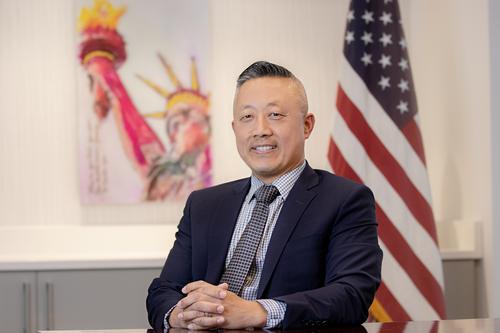The most common limitation set on U.S. visas is the time limit in which you are allowed to stay in the U.S. before going back to your home country. Depending on which type of visa you have, you may be able to extend your stay by renewing your visa without going back home first. Immigration visas must be renewed every few years, unless they are transitioned into green cards (permanent resident cards).
Visa Limitations May Affect Your Work and Family
The U.S immigration system prioritizes bringing family members together, attracting people with skills that can benefit the U.S. economy, and shielding foreign refugees. However, the government places many restrictions on immigration to the United States to control the foreign population and derive the biggest possible benefit from their presence in the country.
Immigrants may face many limitations on their U.S. visas, including:
Number of available visas.
The government places caps on how many of each visa type may be granted each year. For example, only 10,000 EB-5 visas are available per year, while the number of H-1B visas may reach 65,000. If the number of applicants exceeds the number of available visas, the rest will be put on a waiting list.
Nationality.
The government also places a cap on the number of immigrants that may enter the U.S. from any one country. For example, no group of permanent immigrants from a single country may be greater than seven percent of the total amount of immigrants to the United States each year.
Family members.
The family-based immigration category allows U.S. citizens and permanent residents to bring their immediate family members to the U.S. Petitioners are allowed to apply for visas on behalf of their spouses, unmarried minor children, and parents, as long as they meet the age and financial requirements. Other family members can attain visas through the family preference system, including married or unmarried adult children and brothers and sisters of U.S. citizens. At least 226,000 preference system visas are granted per year.
Employment.
Employment-based immigration was created to bring in immigrants with valuable skills to benefit the U.S. economy. One of the most common types of employment visa is the H-1B visa, which is sponsored by a U.S. employer. An H-1B visa holder must work for the same U.S. employer that sponsored the visa, and the spouse and children of the H-1B visa holder are not permitted to work at all. If the H-1B visa holder is terminated or wishes to change jobs, he or she must apply for a new H-1B visa.
Marriage status.
There are several ways marriage can impact your U.S. visa. For instance, those who are granted a K-1 visa must enter the U.S. within six months and must marry the petitioner within 90 days of arrival. K-1 visa holders cannot marry any other U.S. citizen other than the person who filed the visa petition (without filing a new petition) and cannot adjust his or her residence status unless legally married to the US citizen who filed the K-1 petition.
Ability to travel.
Depending on the type of visa you have, you may be required to stay in the U.S. for a certain amount of time without traveling internationally. One of the few visas that does not have foreign travel restrictions is the O-1 visa for immigrants with extraordinary ability.
Are You In Need Of An Immigration Attorney In Virgina, Maryland or Washington D.C.?
If you find yourself facing immigration issues you need to speak with an experienced immigration lawyer as soon as possible. Please contact us online or call our Vienna, Virgnia office directly at 703.991.7978 or our Rockville, Maryland office at 301.637.5392 to schedule your case consultation.
|
Related Links: |

